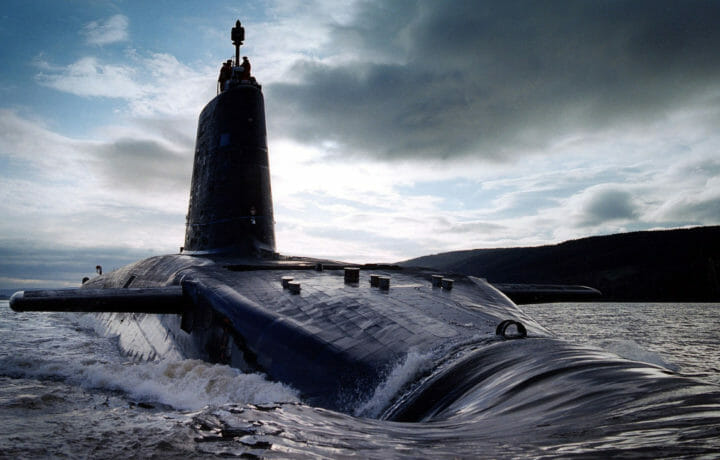There is no denying that serving on a submarine can be a challenging career choice. There are of course the pressures of having to work on a vessel that often spends most of its time under the water. As a result, submariners are known to be a breed of sailors that lives up to the old saying “work hard, play harder!”
For those in the Royal Navy, they’ve been known to take the “playing harder” aspects of life to some extremes. That included a Royal Navy Commander who literally threw a party for the crew of the hunter-killer submarine HMS Trenchant during the coronavirus lockdown in August 2020, despite the objections of his senior officers. In October of that same year, members of the crew of HMS Vigilant – one of the four ballistic missile submarines that maintain the UK’s nuclear deterrence force – broke quarantine to hit bars and strip clubs while in port in Georgia. Several later tested positive for COVID-19.
That incident was also just the most recent event involving bad judgment aboard the Vigilant. In 2017, some sailors serving on the nuclear-powered boat violated liberty and tested positive for drugs; while a prior captain and fellow officer were also relieved of duty after it was found they had sex with female officers and used a variety of narcotics onboard the boat. As a result of that particular scandal, the sub earned the dubious nickname “HMS Sex and Cocaine” in the British press!
In another incident that made the rounds in the tabloids, a Royal Navy officer was found to have been filming “porn to order” with her seaman lover inside a classified British nuclear base.
Though those actions were highly embarrassing for the UK’s “Senior Service,” there was less concern that national security was actually compromised. Such was not the case with pair of Royal Navy officers, who recently faced a naval tribunal.
Career Sinking Move
The two officers, including Lieutenant Sophie Brook – the first female warfare officer on a nuclear sub and who had been tipped to become the first female captain of a Royal Navy submarine – and Lieutenant Commander Nicholas Stone had reportedly put the secrecy and security of HMS Victorious at risk after sharing classified movements that could have been intercepted by an enemy.
The two, who had been engaged in an affair while serving on the Royal Navy’s nuclear submarines, had shared messages via email that contained the departure time as well as the direction, speed and depth of travel of the Vanguard-class submarine. The messages, which were sent to Stone’s Yahoo account, were part of the pair’s “clandestine sexual relationship.”
In July of 2020, HMS Victorious was about to set sail for an operational patrol when Brook sent a number of emails to Stone – using her secure MODNet account to send messages to his personal Yahoo account. The breaches were soon discovered by another officer on the Victorious before the submarine departed, but Brook was allowed to remain on board.
At the time the messages were sent, Brook was serving as watch leader aboard the HMS Victorious, while Stone, who had served in the Navy since 2003, was shockingly the security officer aboard HMS Ambush, an Astute-class nuclear-powered attack submarine.
Both boats were based at HMS Clyde at Faslane, about 25 miles from Glasgow.
During the recently concluded court-martial hearings for the two Royal Navy officers, Lt. Brook was described as a trailblazer, who had testified that she felt a lot of pressure being the spotlight, and then relied on Stone as an emotional crutch. Both officers have admitted their mistakes, yet the judge in the case castigated their behavior, and warned that their actions had “compromised the security of the continuous at-sea deterrent.”
Both have since been dismissed from the military and ordered to carry out 60 hours of unpaid work. Stone was handed a suspended prison sentence of four months, while Brook was also handed a suspended prison sentence of five months.
Following the sentencing of the former officers, a Royal Navy spokesman said it demanded “The highest possible standards of behaviour from all its personnel” and reports of “activities which fall short are taken very seriously, fully investigated, and dealt with as appropriate.”
Loose lips may sink ships in wartime, but bad decisions made in peacetime can most certainly sink promising careers.




